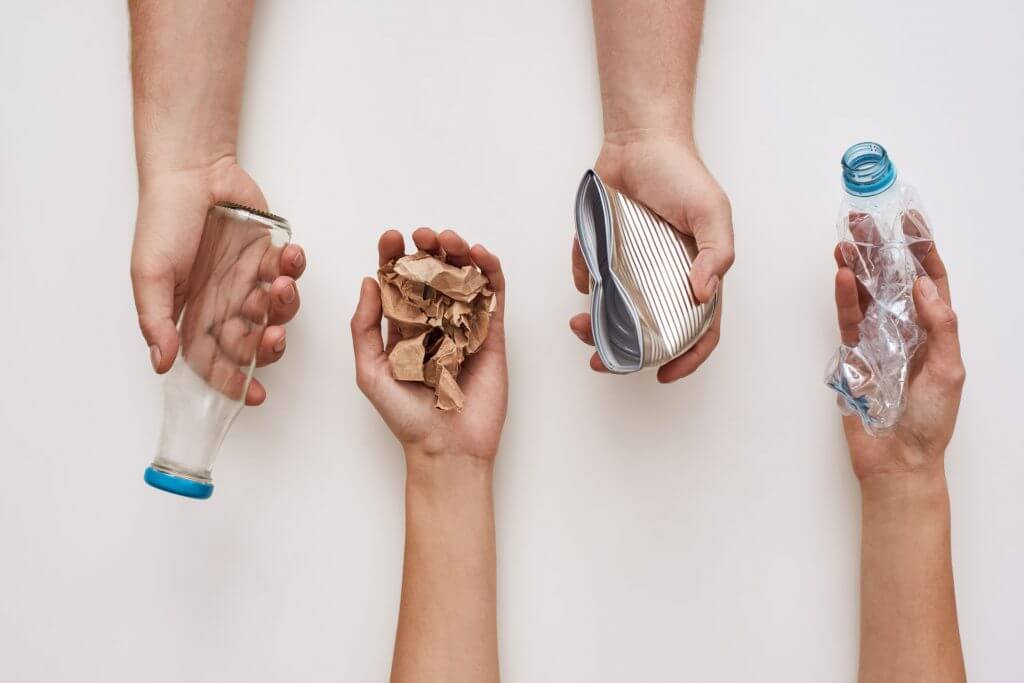
Green is the color of the earth. At least, that’s what people, governments, and industries are trying to achieve. Everyone is making efforts to reduce their carbon footprints by reducing how much damage they do to the earth. Governments are enforcing industries to steer clear of chemicals that have debilitating effects on the earth while encouraging them to embrace eco-friendliness.
Similarly, more consumers are welcoming eco-friendliness, with 61% of individuals from the age of 22 to 35 willing to even pay more for eco-friendly products according to this study. All hands are undoubtedly on deck in the fight for sustainability of the planet, including those of the protective coating industry.
The Impact of Protective Coatings on the Society
There is hardly any industry that can do without protective coatings, even in large quantities. As long as there are structures made of metal, concrete, or wood, there’ll always be the need for protective coatings.
Protective coatings are chemicals that are applied on substrates, like metals, to protect them and extend their lifespan. Paint is one of the most common examples of protective coatings. Tar, plastic, and bitumen are other examples of protective coatings.
The magnitude of the importance of protective coatings is most obvious when you consider the various areas of applications where we use protective coatings. For instance, any piece of metal you see around you most likely has at least one layer of protective coating on it. Ships and airplanes have protective coatings on them. Machinery used across various industries, including oil and gas, agriculture, power generation, or the marine industry all have protective coatings on them. Your painted walls have protective coatings on them. Everywhere you look, there are protective coatings.
This huge market only means one thing: The demand for protective coatings is high. And with this high demand, the supply of protective coatings must rise to meet it. As a result, if any non-environmental-friendly materials or practices are being used in the manufacture of these protective coatings, their effects are going to be just as colossal.
How Protective Coating Companies are Ensuring Sustainability
The protective coating industry can play a major role in sustainability in two main aspects: The packaging of their coating and the contents of their coatings.
Packaging has always been one of the biggest issues of sustainability. For instance, product packagings, like plastics, are not easily biodegradable. But they are widely used across various industries.
Similarly, the contents of the coatings can affect environmental sustainability, especially when it comes to how hazardous the contents are.
How then is the protective coating industry handling sustainability?
1. Replacing plastic with paper
The technology of paper packaging in the place of plastic packaging is being explored. Paper is more easily biodegradable than plastic because it is more porous and easily attracts water. Also, the paper has a renewable source (trees). Plastics, on the other hand, often have non-renewable sources. Therefore, the switch to paper packaging makes it easy to reduce the reliance on plastic packaging in the industry.
2. The use of composite packaging
The formation of composite is one of the ways to enhance sustainability. However, some packages compost very slowly because their contents have chemicals that interfere with compostability. This problem plagued the protective coating industry for a long time until the development of novel resin and additive technologies that don’t block compostability.
3. Easing reusability
One of the ways the protective coating industry handles sustainability is to make it easy to recycle its packaging. For instance, protective coating companies use labels an end-user can easily and cleanly remove, thereby making it easy to reuse the packaging for other purposes. The alternative to this would be to dump the packaging at landfills, which is a far from friendly practice on the earth. A hefty point for easily removable labels.
4. Reduction in the use of hazardous materials
For a long time, the protective coating companies relied on materials that are hazardous to the environment as ingredients for their coatings. Examples of such hazardous chemicals are VOCs. But with the advancement of coating technology, new and more sustainable alternatives have been found to many of these hazardous chemicals. Now, for instance, we have zero-VOC and low-VOC products and UV-cure coatings.
5. Better waste disposal
It is impossible to eliminate manufacturing waste in any industry. However, these wastes can be controlled and minimized. And the key to this is in the three Rs — Reuse, Reduce, and Recycle.
One of the ways protective coating companies go about controlling their manufacturing waste is by developing systems that make them reintroduce reusable materials into their production processes. Also, they recycle all recyclable products, such as wooden pallets, metal drums, and cardboard boxes, rather than dumping them on landfills.
A Win For Mother Earth Is A Win For Us
Thanks to the sustainability efforts of the protective coatings industry and other industries, we are slowly reclaiming the original green of the earth. New coating production materials are being introduced to improve eco-friendliness. And new packaging technologies are also supporting the fight for sustainability.
However, packaging issues in sustainability would be significantly reduced when you ship your protective coatings in bulk. A tanker loads the protective coatings in large quantities and unloads them into appropriate containers. That is why at Total Connection logistics company, we dedicate ourselves to the safe, efficient, and effective shipping of protective coatings of all kinds.
By filling out the quote form below, you would be taking your protective shipping supply chain to a new level where efficiency, affordability, and flexibility are the heroes.
